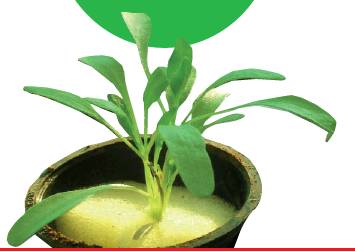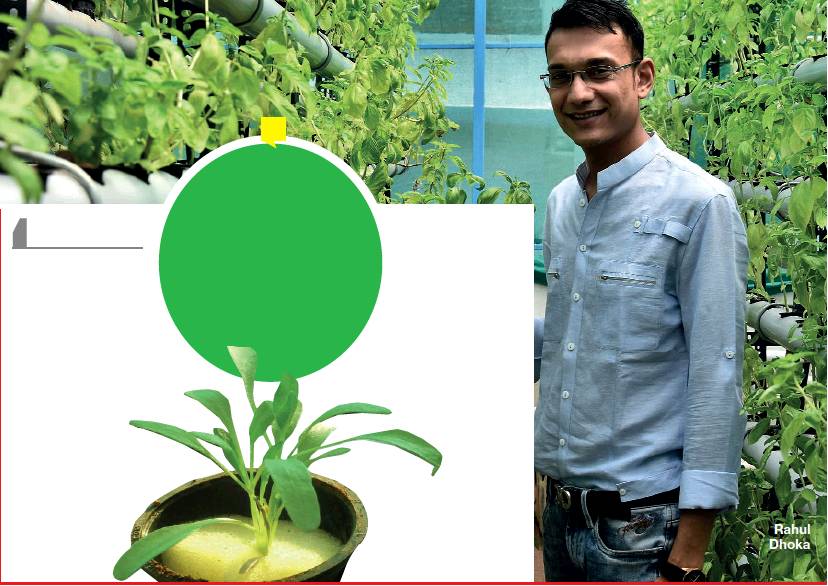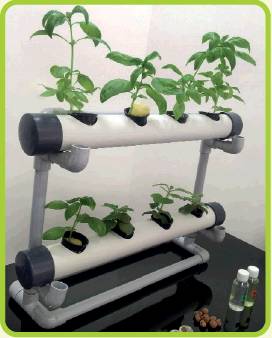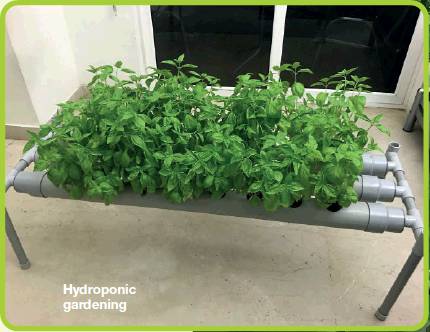



Imagine being able to grow your own veggies, and eat them, too. Fresh and free of pesticides, plucked right off the plant. But how is that possible in a city, you ask? Right through your own balcony or terrace, says Chennai resident Rahul Dhoka.
With an interest in organic farming, Rahul’s curiosity was piqued when he stumbled upon hydroponics. “The possibility of improving our food security and the fact that plants could be controlled in such an intricate manner caught my attention,” he begins.
He explains hydroponics as “the most efficient practice of agriculture. It is a soilless form of cultivation, where the roots are fed with nutrient-rich water to grow. The popular media which replace soil are cocopeat, hydrotons, perlite, vermiculite, sponge, etc.” He adds, “In hydroponics, plants can be grown vertically, allowing us to grow many crops in a confined area. For example, as many as 240 plants can be grown in 6sq ft. area.”
FOR A HEALTHIER TOMORROW
Though factors such as temperature, light, humidity, etc, need to be controlled while cultivating on a large scale, hydroponics is very much possible in Chennai, asserts Rahul. “One need not worry about water consumption for plants as hydroponics uses 90 percent less water than soil cultivation. For example, a lettuce or basil plant would take just three litres of water in comparison to 50 to 60 litres in soil per harvest.”
He advises growing seasonal crops which thrive in tropical humid weather. “The plants that would thrive here in Chennai through hydroponics would be all leafy greens like amaranthus, spinach, kale, pak choi, the local keerai varieties like sirrukerai, arrekerai, valarakerai herbs like basil, mint, thyme, chives, pepper varieties, lemongrass, tubers, cucumbers, brinjal, okra, and so on. Growing off-season crops like lettuce and broccoli would be possible only after controlling natural elements like temperature, light and humidity,” he says.
After amassing knowledge on hydroponics and its implementation, about a few thousand plants grow in 100sq ft of space on Rahul’s terrace. “They are vertical systems of seven layers at a height of 8ft. Although it isn’t practical to cramp so many plants. I grow spinach, kale, pakchoi, mint, a few basil varieties, lemongrass, and some varieties of microgreens,” says the entrepreneur.
According to him, this method is a one-time investment and the only recurring cost is nutrients, which is not a major expense. “In terms of management, only a little time is required as it doesnt need soil, tilling, weeding and watering. So, spending around 30 minutes a week should be enough to maintain a system of 500 plants,” he avers.
Having gained years of experience in the method, his advice for people who are interested in this is to start in a smaller scale. “Learn everything about it and then invest big. The picture of you being prosperous in commercial hydroponics is only a myth if the growth is not organic. People usually begin with greenhouse they cannot handle and end up burning a big hole in their pocket. I would suggest people to begin with small systems and upgrade once you are able to grow the produce and sell it.
“We encourage schools to include hydroponics in their curriculum as an extra activity to spread the awareness to children. If parents could educate their children on how plants and greens are grown, they will appreciate their food and it will no longer be something that magically appears on their plates. The use of several pesticides and oxytocin in vegetables to increase its yield is the root cause of cancers and major ailments. All these can be avoided by growing your own food which is free from harmful chemicals. Restaurants and cafés providing fresh grown greens and herbs are very popular abroad, in places like Bangkok, London and New York, but the concept of farm to table is yet to pick up in India.”
About the awareness about hydroponics in Chennai, Rahul says, “Although it is not an all-new technology, it is a new market here. People are yet to trust this technology completely. We do spread awareness of hydroponics through social media and conduct training sessions so people can learn the technology practically. We participate in exhibitions and also rely on word of mouth. In the recent past, people have been showing interest and trying out hydroponics in small ways, by buying small systems and doing their own experiments. Of late, people who have existing rooftop or those who are interested in gardening are coming forward to purchase the systems.”
Source: Times of India, 14 May, 2019. Chennai.